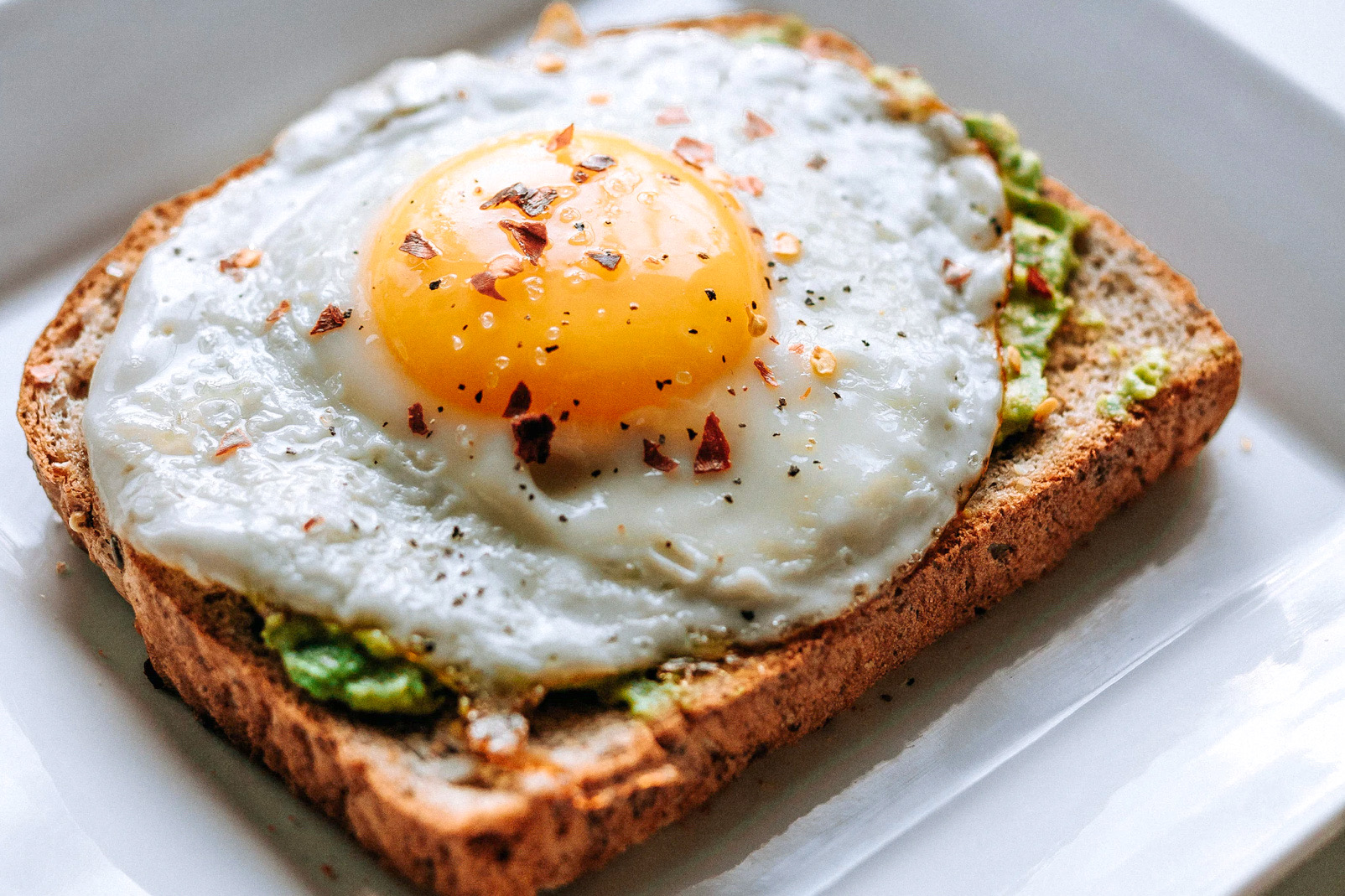
There are 3 habits that support physical and mental health more than any others. Your diet, your quantity and quality of sleep, and your physical activity. Focusing on one primary habit for each can have significant positive effects on your your health and by keeping things simple and focused you can improve your chance of success.
The most important of these habits is sleep as it supports and effects the other two. Too little, or a poor quality of sleep, and the hormones that control appetite and hunger are affected in a negative way. A reduction in your growth hormone at night will also occur, affecting the growth and repair of your body. If there is only one habit that you can focus on, focus on the habit of sleep.

SET A SLEEP SCHEDULE
There was a study done where they took healthy subjects and restricted their sleep to just 6 hours a night for 10 days.
This might seem laughable to us as most Americans, including our teens, get less than 7 hours a night on average. You might think that doing a study like this just doesn’t make sense in the context of our modern lives. What was interesting is that this study tested performance and ability to function each day, then compared these tests to when the subjects were kept up for 24 hours straight. The impairments to focusing and ability to perform were similar.
Sleeping less than 7 hours a night for 10 days is like staying up for 24 hours straight!
If you can imagine staying up for 24 hours straight and having to measure your cognitive function one can guess that you would not do well. Staying up too long increases a doctor’s errors in their ability to practice medicine. Too little sleep and driving is impaired and starts to match driving while over the legal limit for every hour that someone is awake past a certain point. Memory is impaired and learning takes a dive with less or poor sleep. We are more prone to a fear bias and our mental health is at risk with less sleep. Our hormones that regulate our appetite are affected, making us feel less full but hungrier, with less sleep. We crave higher calorie foods with high fats and sugars. Our growth hormone is reduced making us more prone to injury and reduces our healing ability. Even our DNA takes a hit when we sleep less!
The cost of poor or too little sleep is significant to our mental and physical health.
The biggest areas to focus on with sleep are the quantity and the quality. The first, how much sleep we get, is something that we have more control over. The second is related to external and internal influences. The internal influences to sleep need to be tested with an accurate sleep study to determine if there are any sleep problems like Upper Airway Resistance Syndrome UARS or Obstructive Sleep Apnea OSA. Other influences to our sleep quality are light and temperature. Too much stimulating light, like the blue LED light from our screens, and this delays the sleep hormone melatonin that prepares our bodies for sleep. A room temperature that is too warm and this also affects the release of melatonin.
Habit #1
The first thing to focus on is a set bedtime and wake up time with an 8 hour sleep opportunity for adults and a 9 to 10 hour sleep opportunity for teens.
TIPS
Success in improving our sleep schedule is related to our sleeping habits; our prelude to sleep, the things we do to prepare to go to bed, the environment in which we sleep, and our habits of waking up.
To increase the success in managing a set sleep schedule we need to control our light exposure and room temperature.
Focus on improving the quantity and the quality of your sleep.
Allow yourself an 8 hour sleep opportunity every night, including the weekends.
Curious about your sleep quality? Get it tested with a medical grade, FDA approved, accurate and affordable home sleep study.

GET OUTSIDE
The habit of physical activity throughout your week can reduce your risk of a fatal heart attack. Getting outside to walk, or even better, hike or bike, three times a week can lower your risk of a heart attack. The mental clarity and increased potential productivity through getting outside is a commonly untapped resource.
Getting your heart rate up is important to getting the health benefits of exercise.
You can use perceived exertion to determine your level of activity. Feeling ‘breathy’ but still being able to carry on a conversation is a good indicator that you are working enough.
Interval training
Your body does not know the difference between 20 minutes of continuous aerobic exercise and four 5 minute exercise segments. Push yourself to get your heart rate and breathing elevated then back off to a walk. Once your breathing recovers then increase your intensity again, holding it for another 5 minutes, or longer.
Increase the intensity of your outdoor activity through increasing your speed or the incline. We have a lot of hills in Colorado Springs and one easy way to get a more intense workout is to go uphill.
Exercise for 20 to 30 minutes, 5 to 10 minute blocks of increased intensity with short breaks in between to recover.
Increase your intensity by moving your arms while walking, setting a longer stride, and/or walking uphill.
Habit #2
Block time each week to get outside. Increase your intensity of walking or biking in intervals to get the health benefits associated with a higher intensity workout.
TIP
Calling your time outside a meeting makes it more important to you and those around you.
NEAT versus EAT
A word on Non-Exercise Activity Thermogenesis and Exercise Activity Thermogenesis.
Exercise Activity Thermogenesis is when we take time to get a workout in. NEAT is the activity/energy burn that we are doing throughout the day. Even if we don't have time to get out and exercise we need to focus on our daily energy burning activities.
“We burn more calories overall from NEAT vs EAT. Doing things that make us move overall is a better way to be healthy than to only workout at a health club. Habits such as listening to music versus watching TV, parking farther away in shopping parking lots, taking the stairs versus elevators or escalators, and other things are actually more effective.”
Jerod Langness, Fitness and Nutrition Expert

EAT BREAKFAST
What is one thing that lean people have in common more than anything else? They do not skip breakfast.
Having a Body Mass Index or BMI that is within your lean range is linked to so many aspects of our physical health. If you are overweight or obese there are significant health risks associated with a higher BMI. Want to improve your energy, your sleep, blood pressure, cholesterol, and other aspects of your overall health? Returning to a healthier weight through starting one habit, eating breakfast.
Let’s talk about insulin. Insulin is a hormone that is released by our pancreas when our blood sugar levels get too high. This role with blood sugar moves excessive sugar from our blood and stores it in our fat cells.
Most of us skip breakfast as it can make us feel hungry by mid-morning or we just don’t have the time. Eating foods that are slow to raise your blood sugar, low-glycemic, allow these nutrients to be used for fueling your day. Spiking your insulin with high sugary or fatty foods takes the calories you just ate and stores them in your fat cells instead of using it for immediate fuel. That’s why we feel the need to eat so quickly after a high-glycemic meal.
A calorie is not a calorie.
This was developed as a scale where 100 is the effect of glucose, or pure sugar, on our blood sugar. All other foods have a number that is lower, so a number of 30 will raise your blood sugar more slowly than a food with a number of 60. The more complex the food source typically the lower the glycemic index score. (For example the GI for celery is 35; while the GI for instant oatmeal is 79.) Keeping your blood sugar at a more stable level reduces the highs and lows of insulin. A blood sugar spike stimulates more insulin release, storing the excess energy in our fat cells.
Fat is a great energy source but it packs a lot of easily accessible calories with an opportunity to increase your insulin too quickly.
The goal is to keep your insulin from having too many highs and lows but to maintain a more consistent level. Reducing our overall calorie intake below our daily needs triggers a release of energy from our fat stores. This can be a safe and consistent way to burn our fat stores and return to an optimal weight for our height and age.
Having enough protein helps protect our muscles from being used as an energy source.
Blood sugar spikes stimulate more insulin release, storing the excess energy in our fat cells.
One last thing, energy density is something to pay attention to. A lot of elimination diets use rice as a staple. The problem with rice is that while it is good for a reduced sensitivity diet it is rich in calories and has a very high glycemic index.
A Mediterranean Diet is a lower glycemic diet while watching portion control or food energy density.
Habit #3
Eat a low-glycemic breakfast with balanced carbohydrates, fats and proteins. Shoot for 10 to 12 grams of carbs, with dietary fiber as the biggest part of this, 4 to 5 grams of fat, and higher protein, > 10 grams.
TIPS
PAUSE AND REFLECT
When you reach for a snack pause and let your brain get involved on your choices. Are you following a past story such as 'cleaning your plate'? What is the cue or trigger that is causing you to reach for that potato chip or cookie?
PAUSE AND REST
When eating take a break and pause. Give your body time to digest. You will enjoy your food more and give your body time to feel full.